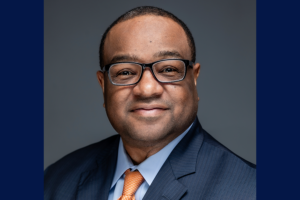
Langston University Awarded U.S. Department of Education-Office of Special Education and Rehabilitation Services Grant Totaling $1.25 Million to Prepare Personnel to Serve School-Age Children with Mental Disabilities
OKLAHOMA CITY––Langston University, Oklahoma’s only historically Black college or university, has been awarded a $1.25 million grant from the U.S. Department of Education’s Office of Special Education and Rehabilitation Servies (OSERS) to establish a new specialized course of study to prepare personnel to serve school-age children with mental disabilities.
The grant, which will total $1.25 million over five years, will be used to establish the “School-to-Work: Preparing Personnel to Serve School-Age Children with Mental Disabilities (STW-SACMD)” track within the university’s existing CACREP accredited Master’s of Science Degree in Rehabilitation Counseling Program. Dr. Corey L. Moore, a professor in and the founding chair of the Department of Rehabilitation and Disability Studies, will serve as Project Director for this grant.
Moore is also the Principal Investigator at the National Institute on Disability, Independent Living, and Rehabilitation Research (NIDILRR)-funded Rehabilitation Research and Training Center on Research and Capacity Building for Minority Entities (LU-RRTC) and Rehabilitation Research and Training Center on Advancing Employment Equity for Multiply Marginalized People with Disabilities (LU-2ERRTC).
“This initiative is important to the field of disability and employment as it affords our program the opportunity to train and prepare our students for rehabilitation positions that serve school-age children with mental disabilities from minority backgrounds to achieve a smoother transition from the secondary grade school system to the world of work,” Moore said.
The STW-SACMD project presents an exceptional approach to student development through LU’s partnership with the Oklahoma Department of Rehabilitation Services, Tulsa Public Schools and other local education agencies in Oklahoma.
Significant attention will be devoted to cross-fertilizing STW-SACMD and on-going LU-RRTC and LU-2ERRTC trainings, including with webinars and community of practices, to increase students’ knowledge about the delivery of transition and mental health services to school-age children with mental disabilities from minority backgrounds. The goal is to increase the supply of fully credentialed rehabilitation and mental health professionals from diverse racial and ethnic backgrounds available for employment in local educational and/or rehabilitation agencies.
The grant will pay for tuition and fees and will provide a living stipend for 36 students in the Rehabilitation Counseling Program, which was ranked #19 and highest across all HBCUs by the U.S. News & World Report in the publication’s 2023 rankings of Rehabilitation Counseling Programs in America.
“I am immensely proud of the continued success of Dr. Moore and scholars within Langston University’s Department of Rehabilitation and Disability Studies,” said Dr. Ruth Ray Jackson, President of Langston University. “This $1.25 million grant from the U.S. Department of Education is further evidence of the impact of their work in preparing our students for success and addressing needs across underserved communities.
“This significant investment supports our institutional priorities of offering quality academic programs, engaging in purposeful partnerships, and ensuring access to education for all.”
This OSERS priority (ALN 84.325M) focuses on personnel preparation of special education, early intervention, and related services personnel at HBCUs, Tribally controlled colleges and universities, and other minority-serving Institutions under focus area (B)- preparing personnel to serve school-age children with disabilities.
The funded STW-SACMD initiative at LU is in direct response to identified needs related to personnel development issues and demands and the improvement of services and results for school-age children with mental disabilities, especially those from racially and ethnically diverse backgrounds, including those who are multilingual.

